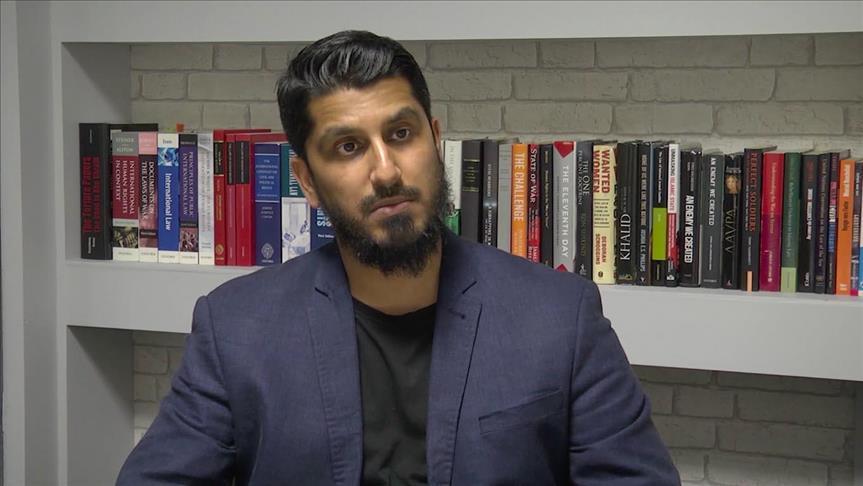 Muhammad Rabbani, international director of CAGE
Muhammad Rabbani, international director of CAGE
By Ahmet Gurhan Kartal
LONDON
The director of a British advocacy group has been convicted by a London court on charges brought against him when he refused to surrender his laptop and cellphone passwords to U.K. airport police.
Muhammad Rabbani, international director of CAGE -- which says it “seeks to work for political detainees, specifically those interned as a result of the War on Terror” -- was charged with wilfully obstructing and seeking to frustrate a search at London’s Heathrow Airport in November 2016.
Rabbani was sentenced to a 12-month conditional discharge and ordered to pay a £620 ($835) fine -- a decision he said he would appeal.
In a statement following the conviction Rabbani insisted he had “won the moral argument”.
“CAGE and I are glad we brought this case, and the result indicates that our only option is to change the law,” Rabbani said.
Referring to the U.K.’s anti-terrorism laws, he added: “Schedule 7 actively discriminates, and this will hopefully be the start of a number of legal challenges as more people take courage to come forward. We will be appealing this decision and we have won the moral argument.”
Rabbani was detained after disembarking a flight to the U.K. last year and was questioned by the British security services under Schedule 7 of the country’s Terrorism Act.
Under the law, any individual entering the U.K. can be detained and questioned and their DNA and fingerprints can be collected. Their passwords can be demanded to access personal devices by the security services without needing any suspicion regarding the individual.
Rabbani has insisted that the data on his devices were confidential as he was working on a case of torture.
“Today’s judgment, based on the judge’s and prosecution’s acceptance that I am of good character and worthy of belief, highlights the absurdity of the Schedule 7 law,” Rabbani said. “They accept that at no point was I under suspicion, and that ultimately this was a matter of having been profiled at a port.”
“There are important implications for our collective privacy as [Schedule 7] acts as a digital strip search.”
However, police commander Dean Haydon, head of the Metropolitan Police’s Counter Terrorism Command, defended the use of the legislation.
“It’s crucial that police are able to use the legislation that exists to help keep the public safe,” he said in a statement.
“Schedule 7 of the Terrorism Act 2000 is a vital tool in the fight against terrorism and we are committed to ensuring the power is used appropriately and proportionately, as it was in this case,” he added.
He confirmed the police were still examining Rabbani’s cellphone and laptop.
Speaking to Anadolu Agency in an exclusive interview in May, Rabbani said: “There is a growing trend globally of Western governments in particular exercising more and more intrusive powers at borders.”
Anadolu Agency website contains only a portion of the news stories offered to subscribers in the AA News Broadcasting System (HAS), and in summarized form. Please contact us for subscription options.




